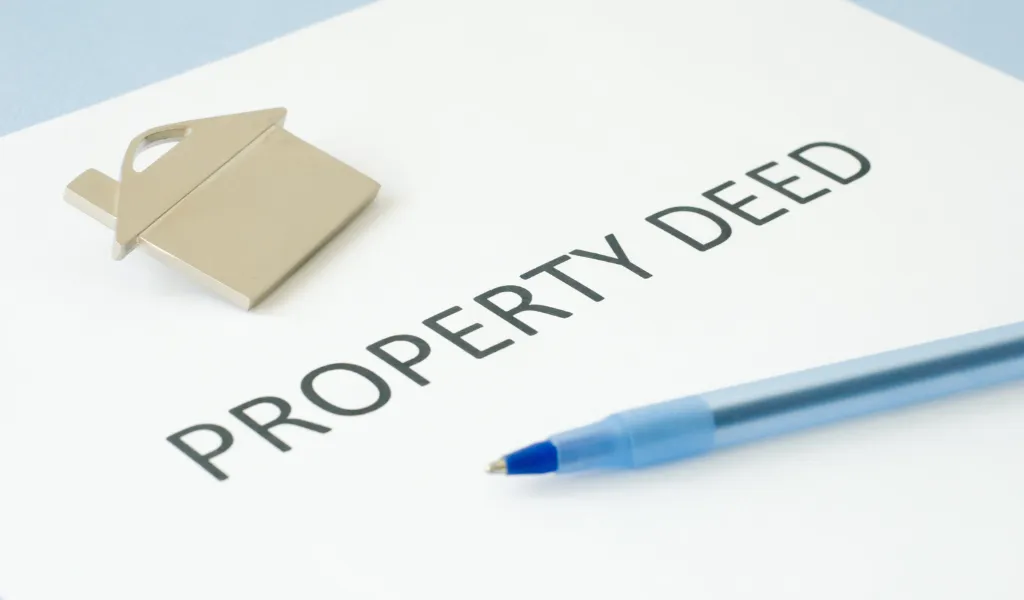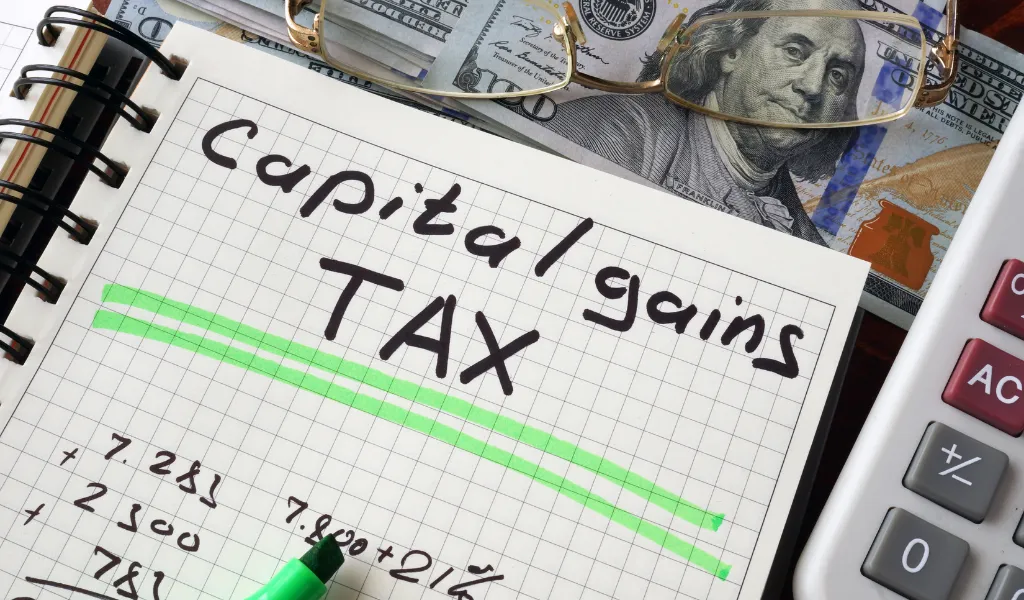Purchasing a property is a complex matter as is without someone else tagging along. If you decide that to buy a house with another person, then you should consider how to protect your share. Fortunately, there is a way to do so legally. This guide will cover every detail about the Deed of Trust rental income.
First, let’s discuss the definition of Deed of Trust. Then, we can move on to how you can obtain it and the advantages of doing so.
What is a Deed of Trust?
A legal document that contains the details of the division of ownership of a property is called a Deed of Trust. Typically, tenants in common use this document. They purchase a property together, but do not pay the same amount towards the purchase price.
This document states the percentage of the property that each owner has and the circumstances of selling the property. Furthermore, it includes what happens if one of the owners wants to sell out later.

Why Do You Require a Deed of Trust?
There are two methods to structure the ownership of the property when purchasing a property with another person. Either you are tenants in common or joint tenants. In case of joint tenancy, you each own an equal share of the property. Moreover, you need to take out a joint mortgage. If one of you passes away, then the other owner inherits the property.
Whereas if you are a tenant in common, then you do not own an equal share of the property. This means that you can transfer your share to anyone you choose through your will. When it comes to tenants in common, you require a Deed of Trust. This legal document mentions how much of the property each person owns. Here is an example of clarification. So, what is a Deed of Trust rental income?
Suppose you and your partner purchase a property worth £300,000. Then, you place a 10% deposit and use a joint mortgage to pay for the rest. The 10% deposit is not evenly split as you pay £22,500 and while they pay £7,500. By getting a Deed of Trust, you can make sure that each one of you receives a fair share of the property when it is sold. Therefore, the Deed of Trust will state that you placed 75% of the deposit. While your partner put down 25% of it. When you sell the property, you get back 75% and they receive 25%.
If you contribute more to the mortgage repayments, then you can also record this in the Deed of Trust. Additionally, you can also mention if you pay for renovations. Then, the division of the proceeds of sale will reflect this extra capital input that you made.
What is the Purpose of a Deed of Trust?
Usually, a Deed of Trust is a legal record that contains the different amounts joint owners contributed towards the property. Nevertheless, you can add other details to the document as well. You can include the following:
- The amount each owner contributed towards the property.
- How much of the share each owner has.
- If one of the owners pays for renovations, you can add it to the document. This can change the shares of the property.
- The amount each owner is paying for ongoing costs for the property. For example, bills or mortgage repayments.
- In case there are any third parties who contributed towards the purchase. A common example is parents. They are not listed on the title deeds. Thus, a Deed of Trust protects their money.
- The circumstances when selling the property or if one of the owners decides to sell their share.
A Deed of Trust Rental Income
The main purpose of a Deed of Trust is to protect the money that you invested in a property. This is the most common reason why people need it. For example, if the owners of the property contribute a different amount to its purchase. In that case, a Deed of Trust is necessary. Another scenario is if a family member contributes to the purchase of property. For example, a parent. You should find out more about gifting a deposit as well.
A Deed of Trust can protect several financial contributions to a property. These include the following:
- Deposit – a record of how much each owner contributed to the deposit. This is inclusive of any third party.
- Mortgage repayments – in case the owners will not repay the mortgage equally, then you can mention the percentage of each.
- Renovations – if there is any renovation work, then how will you pay for it? Also, mention if this will affect the percentages of the ownership of the property.
- Household bills – agreement of how much each owner will contribute towards the ongoing expenses.
Each of these amounts affects the percentage of the property that each person owns. To elaborate on a Deed of Trust rental income, here is an example.
Suppose you are the one who pays 75% of the deposit initially. Which amounts to £30,000. Then, the other owner pays £10,000 for renovation expenses. Consequently, you can state in the Declaration of Trust how this contribution changes their beneficial interest in your property. This statement clarifies that the person who contributed towards the renovations will get a higher share of the proceeds when selling the property.
How Can You Get a Deed of Trust?
You have the option to write your own Deed of Trust. However, even with witnesses, it is not legally binding. Suppose you have a disagreement or conflict with the person you are purchasing a property with. Then, when you sell the property, they are not under any obligation to follow through with the terms in the Deed of Trust. Therefore, the document is of no use. It is important to understand how to get a Deed of Trust rental income.
It is better to consider the option of paying a conveyancer or solicitor to write up a Deed of Trust. They are also in charge of dealing with all the other legal elements of purchasing a property. As a result, the document is legally binding. This means that all parties must stick to the terms.
What is the Cost of a Deed of Trust?
Now, the question arises: how much is a Deed of Trust going to cost you? Well, this depends on the charges your conveyance or solicitor will levy. Also, the complexity of the document is another contributing factor. There are vast differences in costs from one solicitor to another. It can range anywhere between £100 and £1,000.
However, you do have a cheaper option available. You can let the solicitor who is dealing with the purchase of your property draw it up rather than finding someone else.
When you compare quotes from solicitors, you can mention that you want a Deed of Trust in the comparison. You can reach out to solicitors to ask how much they will charge for a Deed of Trust. This way, you can choose your solicitor wisely.

Deed of Trust Through Online Service
You can use an online service to obtain a Deed of Trust. This will lower the costs. You can find solicitors that offer Deed of Trusts online. Once you fill out the forms, a legal professional will check them. Then, they will send you the completed legal documents. Rest assured that this is going to save you money. Make sure to check the various prices before you decide.
Template for Deed of Trust
You can find Deed of Trust templates free of cost or under £35 on various websites. Although, you should use them cautiously. The person drawing up the template is not likely to know any more about the legal requirements than you do. There are websites with templates that do not even cover the basic concept of a Deed of Trust. Therefore, it is better not to use online templates. Therefore, you should know how to get a Deed of Trust rental income.
When compared to how much you are investing in a property, hiring a professional for your Deed of Trust is not that expensive. This cost is worth bearing, as it will protect your investment. Thus, you should consider getting a Deed of Trust through a valid and professional method rather than finding templates online.
Is it Necessary to Register Your Deed of Trust with the Land Registry?
There is no need to record the Deed of Trust on your title deeds once you obtain it. Legally, there is no requirement for you to register it anywhere. Therefore, it remains private. Yet, if you want, you can register it with the Land Registry. As a result, selling the property will require the consent of the people on the Deed of Trust.
Can You Get a Deed of Trust After Buying?
The short answer is yes, you can get a Deed of Trust after purchasing a property. However, you must conduct a current valuation of the property. Which all the joint owners should agree to. After this, you can settle on the terms of the Deed of Trust and ask a solicitor to draw one up. Once the Deed is signed and witnessed, it is legally binding from that point onwards. Now, you understand when you can get Deed of Trust rental income.
Who Qualifies to Witness a Deed of Trust?
You need a witness when you sign a Deed of Trust. This makes it legally binding. Your witness must meet the following criteria:
- Over 18 years old.
- Mentally capable.
- Has no relation to you.
Can You Amend a Deed of Trust?
If your situation changes, then you may wish to amend a Deed of Trust. You can do so by adding a deed of variation to the original document. This is for any minor changes you want to make.
Nevertheless, you should get the Deed of Trust rewritten if you want to make major changes. Following are the reasons for such a situation:
- The owners of the shares of the property are now someone else.
- In case, the value of the property is not the same because of renovation.
- If the ownership split is now different.
What is a Floating Deed of Trust?
Also called as a commensurate share deed of Silver Deed, a Floating Deed of Trust is more complex than a standard Deed of Trust. Through this type of deed, you can consider various costs that can increase your beneficial interest in the property. You can use a Floating Deed of Trust to record that you or another owner is paying for significant renovation works. Or perhaps an extension. As a result, this increases beneficial interest in the property. It is important to understand the terms of a Deed of Trust rental income.
A Floating Deed of Trust is inclusive of a formula that divides the proceeds of the sale according to each owner’s contributions towards payments. For example, mortgage repayments, household bills, deposit, or renovations.
Suppose you purchase a property with your partner. Then, you contribute an equal share towards the deposit. Consequently, you get a fixed Deed of Trust that mentions that you will get 50% from the sale proceeds. After a few years, you and your partner part ways. They move out and stop paying the mortgage. Somewhere down the line, you decide to sell the property. However, during this time, you were the one making the mortgage repayments. In case of a fixed Deed of Trust, your partner still has the right to 50% of the proceeds. Whereas, with a Floating Deed of Trust the situation changes. You will have more stake in the property because of the mortgage repayments.
Please note that you cannot write up this type of Deed of Trust without a solicitor. Additionally, it can make matters more complex. Therefore, avoid using it unless your situation requires it. You should understand the details of a Deed of Trust rental income.
Difference Between a Deed of Trust and a Declaration of Trust
Although the terms Declaration of Trust and Deed of Trust are used interchangeably, they are different. You should know the difference if you decide to reach out to a solicitor to arrange to have one drawn up. It is important that you understand which terminology to use.
A document which clarifies who benefits from the capital gain or income of a property is called a Declaration of Trust. To elaborate, let’s look at an example.
A married couple wants that the lower earner out of the two gets 100% benefit from a buy-to-let property. Then, they can use a Declaration of Trust to stipulate this. The lower earner will get any income that generates from the property.
Please note that a Declaration of Trust does not require witnesses during signing, as it is not a legal document. Therefore, it is important to know how it differs from a Deed of Trust rental income.
Whereas a Deed of Trust is a more detailed document. As such, it also includes a declaration of trust. Furthermore, it states your intentions as joint owners of a property. This mentions what will happen when you sell the property and how the ownership is split. In comparison to a Declaration of Trust, a Deed of Trust offers more protection. Also, it is a stronger legal document.
Conclusion
To summarise, a Deed of Trust is a legally binding document that protects your money when you invest in property. You can contact a solicitor to write one up for you. It is important to make sure that it states all the necessary legal information. There is a difference between a Declaration of Trust and Deed of Trust. The former is not legally binding and therefore not as secure. As a joint owner, it is necessary to understand the terms of a Deed of Trust.








